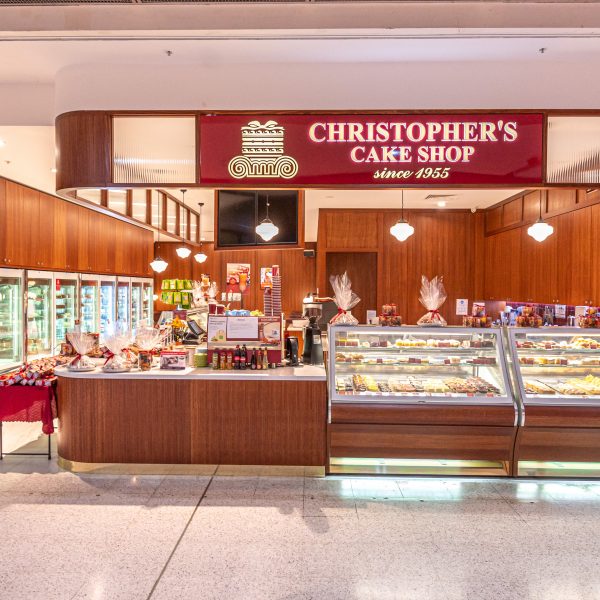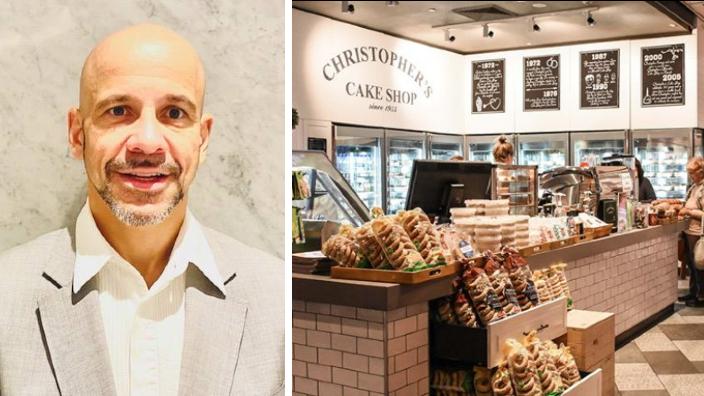Greek-owned family business, Christopher’s Cake Shop, has been serving a variety of handcrafted cakes, pastries and Greek inspired desserts across 10 locations in Sydney since 1955. But despite this success, they haven’t been immune to the critical labour shortage impacting Australia’s hospitality industry due to the coronavirus pandemic.
The industry has historically relied heavily on an overseas workforce from highly skilled chefs and experienced restaurant managers, through to casual waiting staff and international students, many of whom returned home when the pandemic struck last year.
This has now left more than 46,000 hospitality jobs currently advertised online and businesses, such as Christopher’s Cake Shop, struggling to fill these vacancies.
“Recruiting is difficult as there’s a lot more people looking for staff and employees can pick and choose more and come to you with what they want. So as a business, you need to decide whether to stick to your guns or compromise,” CEO of Christopher’s Cake Shop, Kyriakos Panayi, tells The Greek Herald.
JobKeeper and International Students:
Of course, for Mr Panayi, it was all about sticking to his guns and that’s why he decided to keep trading all of his 10 stores throughout the pandemic, despite the labour shortage and reduced profit turnover. He says he was able to continue employing his over 60 employees, who are mostly Australian citizens, with the help of the Federal Government’s JobKeeper supplement.

“In my opinion, JobKeeper was outstanding. Pre-JobKeeper, we were looking at closing six out of the ten shops so the supplement was a massive injection,” Mr Panayi explains.
“In the end, it was just best to keep the shop open, pay the bills and maintain our workforce… because if we closed then reopened, we didn’t know if the staff would return.”
To ease some of this uncertainty for businesses in the hospitality industry, the Federal Government temporarily removed the 40-hour fortnightly cap on working hours for international students already in Australia.
Whilst experts such as Associate Professor Chris F. Wright from the University of Sydney Business School say scrapping the cap will only expose already vulnerable workers to bad faith employers and lead to increased wage theft, Mr Panayi disagrees.
The Greek Australian business owner says removing the cap is the answer to increased growth and “keeping people on the ground” at a time when the hospitality industry clearly has limited options in terms of skilled labour.

“The only solution I see is that if they can’t bring foreign workers in, they have to let those who are already here to work longer hours. The students are prepared to do that,” Mr Panayi says.
The burden of paying rent:
When Mr Panayi isn’t fighting for more workers, he’s also struggling under another burden of the COVID-19 pandemic – that is, paying the rent.
“Most of our landlords provided some rent relief but we all have bills to pay and more could’ve been done. Rent was the biggest burden,” Mr Panayi says.
When restrictions first hit in early 2020, the NSW Government issued a “Mandatory Code of Conduct” (MCOC) which introduced several policies, including a moratorium on evictions for all commercial tenants in financial distress as a result of COVID-19. The lessor and lessee were also encouraged to hold “good faith” negotiations to agree on conditions such as a waiver of rental and deferred rental payments (paid back over a 24-month period).
Senior Sales Executive at LJ Hooker Commercial, Michael Loupis, says the impact of these policies on the commercial retail sector was “immediate.”

“[There was] a drastic drop in transactions being completed in 2020 due to the reduced confidence in the market, especially in the retail sector. There was an increasing amount of small-to-medium cafes and restaurants closing, downsizing or relocating their business due to the COVID-19 stress on the business,” Mr Loupis tells The Greek Herald.
The Sales Executive goes on to add that although there is an argument the government should’ve done more to help retailers, “the situation was delicate from the outset” and commercial property owners who had to pay a mortgage also needed to be considered.
“… if the government had their time again, I’m sure there could have been a different approach undertaken,” Mr Loupis said.
“With that being said, we were lucky in NSW that we were closed for a relatively short period of time compared to other states and also other countries around the world.”
A sentiment which Mr Panayi agrees with as he continues to push through the COVID-19 pandemic, trading and serving the loyal customers of Christopher’s Cake Shop.

